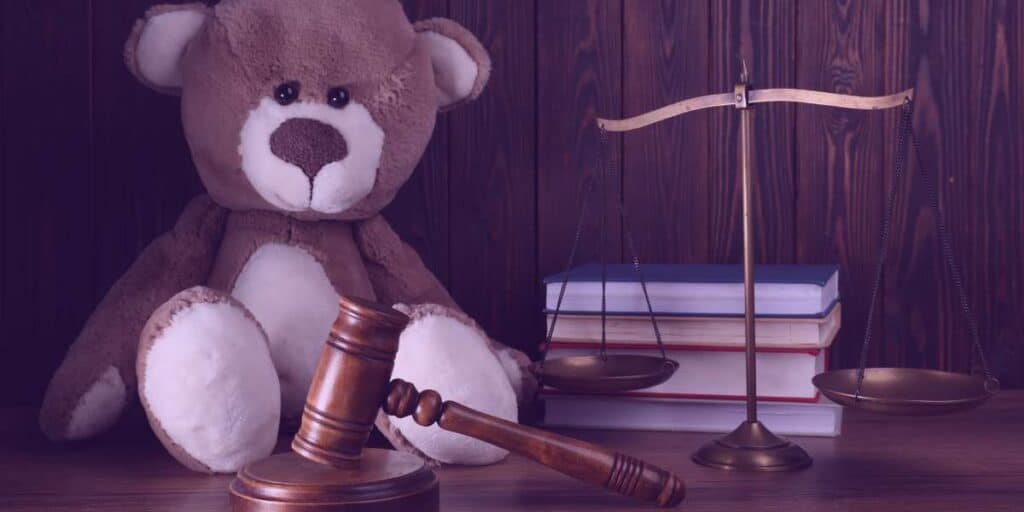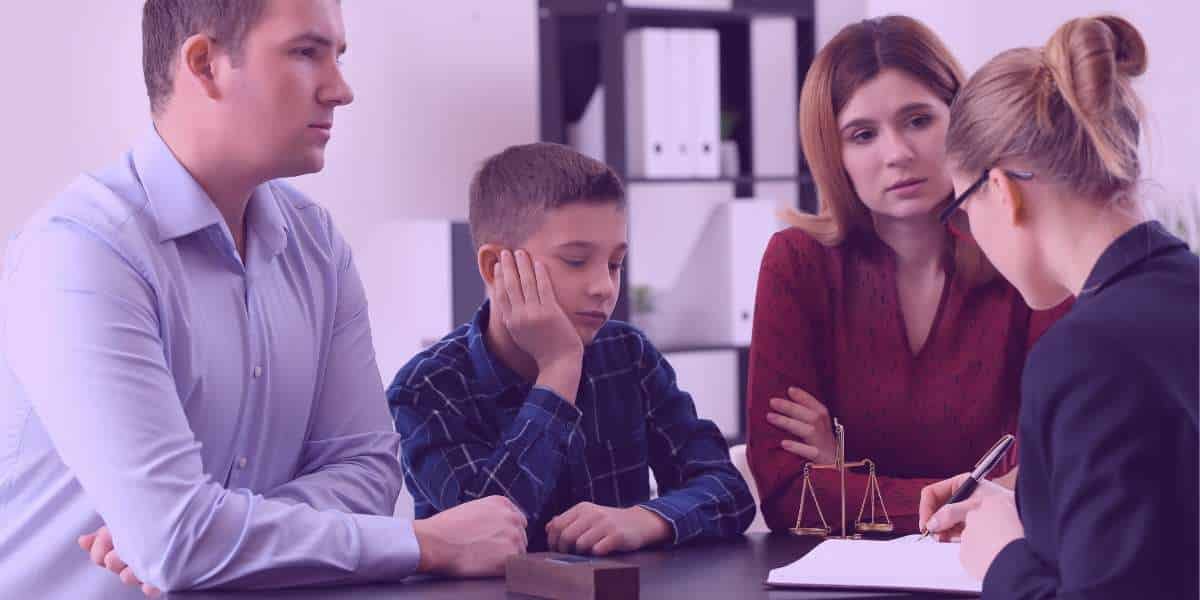Children’s custody is a sensitive issue in cases of separation or divorce, with various custody options available under Brazilian law, including shared custody as the standard arrangement.
In certain cases, using a one-sided guard may be the most suitable option for protecting the child’s welfare.
What is the definition of sole custody? When is it used? And what are the responsibilities and privileges of the non-custodial parent?
This article provides a thorough explanation of how this approach operates, its distinctions from the joint custody, and the key legal principles it entails.
What is multi-parenting and how does it impact the legal aspects of family structure?
What does Unilateral Guard mean?
The one-sided custody is given only to one parent or, in rare situations, to another responsible party if the judge believes it is the best option for the child’s welfare.
This guard is established in Article 1.583, §1 of the Civil Code, which describes:
The custody can be either sole or joint.
A unilateral guard is when one parent or a substitute is responsible for the child, while shared guard involves both parents sharing the responsibilities and rights for their children who do not live together.
The guard is assigned to one parent, but the other parent still has the right to visit and the responsibility to provide food.
It can also oversee the upbringing of the child to safeguard the child’s best interests.
Understand all aspects of parental alienation and how to provide evidence of it.
When is the Unilateral Guard put into effect?
The one-sided protection may be given under the following circumstances:
- One parent’s lack of interest: when one parent does not want or is not willing to take on custody responsibilities.
- If one parent has conditions that put the child’s well-being at risk, such as a history of domestic violence, substance abuse, neglect, or abandonment, it may be considered a parental disability.
- If the judge determines that sole custody is in the child’s best interest for providing a secure and stable environment.
- If the parents agree that one of them should be solely in charge of the custody.
The non-custodial parent does not lose all rights and responsibilities, but the guardian is primarily responsible for the child’s upbringing and daily care.
Main Differences between Unilateral Guard and Shared Guard
The one-sided guard and the shared guard have unique qualities. Compare their differences.
| Feature | Unilateral guard | Shared Guard |
| Responsibility | Only one parent has the guard and makes decisions about the life of the child. | Both parents share decisions about their child’s life. |
| Living | The other parent is entitled to visits, but does not divide the guard. | The time of coexistence with both parents is divided according to agreement or judicial decision. |
| Obligation to support | The non-responsible parent must pay alimony. | Both parents share financial responsibilities, but there may be a pension. |
| Definition | The judge grants when there is risk to the minor or agreement between the parties. | It is the priority rule in Brazilian legislation (Art. 1.584 of the Civil Code). |
| Decision making | The genitor holding the guard makes the decisions, while the other only accompanies and supervises. | Important decisions must be taken together. |
The preferred model in Brazilian legislation is joint custody, as it ensures that the child maintains regular contact with both parents.
If one parent shows incapacity or lack of interest, sole custody may be the best option for safety.
The rights and responsibilities of the parent must not be neglected.
One parent not having sole custody does not result in their exclusion from the child’s life. The Civil Code ensures rights and responsibilities for the non-custodial parent.
Rights: Privileges or entitlements that individuals are entitled to by law, society, or tradition.
- Visitation and coexistence rights specified by the court.
- Accessing information about the child’s school and health.
- Option to ask for a review of custody if there is a change in circumstances.
You are required to.
- Alimony payment compliance.
- Monitoring the child’s welfare and alerting the authorities in case of any issues.
If the guardian fails to recognize that they are neglecting responsibilities or disrupting harmonious living, they can take legal action to revise custody or visitation arrangements.

Jurisprudence regarding the Unilateral Custody
Special resource denied regarding the establishment of shared custody for the child due to the parents’ animosities and belligerence, which would not benefit the healthy development of the daughter.
Guardianship of children can be either unilateral, assigned to one parent or a substitute, or shared, involving both parents in decision-making. The choice between the two should prioritize the child’s best interests. Maintaining unilateral guardianship by a parent is recommended unless there are compelling reasons for change.
Unilateral custody is recommended in cases of constant conflict and lack of healthy communication between parents to prioritize the well-being of the children.
Tips for attorneys handling Unilateral Guard cases
The lawyer needs specific expertise and a strategic plan to ensure the child’s best interests in cases of sole custody.
Some of the primary tactics include:
Guard Duty
When one parent seeks sole custody through the legal process, it is important to provide strong arguments showing that this type of custody is in the best interest of the child.
The attorney is required to:
- Collect proof that shows the strong and secure bond between the applicant and the child.
- Show that the other parent is either unable or uninterested in exercising custody.
- To debate using laws and recent legal decisions.
Family Mediation refers to a process where a neutral third party helps families resolve disputes and reach agreements amicably.
Mediation is a useful method for preventing prolonged conflicts. During this process, the attorney has the ability to:
- Advise your client on the advantages of reaching a mutual agreement.
- Recommend scheduling appointments with a trained mediator.
- To discuss the entitlements and responsibilities of each parent.
Production of evidence
Producing evidence is crucial to back up the petition for sole custody. The attorney must take into account:
- Psychological and social evaluations.
- Communication logs between the parents indicating lack of interest or harmful conduct by one individual.
- Witnesses who can verify the most appropriate setting for the child.
Review of the guard
It is possible to request a review of custody in situations where there are changes in the parents’ or child’s circumstances. In such instances, the attorney must:
- To determine if there are new factors warranting a change in security personnel.
- Demonstrate the beneficial effects of the alteration on the child.
- To provide legal precedents that back up the petition.
Updated Legislation Introduction
The child protection laws could be revised. Staying updated on any modifications and fresh legal explanations is crucial for constructing a strong argument.
Invest in effective communication with customers.
Explaining the advantages and disadvantages of each choice to the client helps prevent future disputes and enhances transparency in the process.
Utilize automated legal tools.
Using a platform like Legal AI can enhance the efficiency of work by improving the drafting of petitions, creating well-supported arguments, and accessing up-to-date case law related to child custody.
Lawyers can enhance their strategic and effective defense of their clients’ interests in cases of sole custody by following these guidelines.
The lawyer’s duty in protecting the Unilateral Guard.
One-sided custody is a lawful option used when it is in the child’s best interest for only one parent to take on the primary responsibility for their care and upbringing.
Brazilian law usually favors joint custody, but there are situations where sole custody may be the safest and most suitable choice, ensuring the other parent’s right to see the child and provide financial support.
In this field, lawyers need extensive knowledge of laws, strategic evidence preparation, and mediation skills to secure fair judicial decisions that meet the child’s needs.
Keeping up with regulatory and legal changes enables a more effective functioning, safeguarding the minor’s rights and encouraging measures that guarantee a nurturing and steady family setting.
Read the article about Family Holding to learn about its definition, operation, and implementation.


